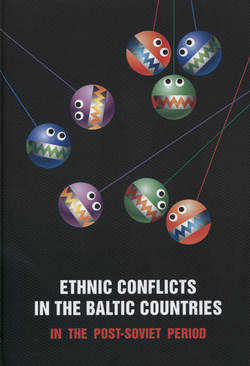Читать книгу Ethnic Conflicts in the Baltic States in Post-soviet Period - Сборник статей - Страница 4
На сайте Литреса книга снята с продажи.
Ethno-political conflicts and national identity in Latvia
Dr. pol. Mihail Rodin
Institute of European Studies, Latvia
ОглавлениеBackground. As conceptual guidelines for the analysis of ethno-political conflicts and national identities in our study in Latvia, we rely on the Huntington’s theory of cultural identities, or “civilizations” involved in the inevitable conflicts. These conflicts have resulted in the end to the “clash of civilizations.” We share the conviction that the “identity matters.” Our difference consists in focus to micro ethno-political and cultural communities and identities in one region – Latvia. Our interest was caused by the way the Latvian nation and its ethnic groups, as well as forming their identities (certainly within the Western and Slavic-Orthodox civilization) constitute a clash or a tolerant coexistence.
The inevitable nature of the politization of ethnicity and ethnic conflict in multicultural ethnic societies, pointed out in his writings Horowitz, which makes the methodological foundation for understanding the causes and dynamics of ethnic and cultural relations in Latvia. From the point of view of the theory of democracy, ethnic conflict is a threat to the democratic regime, especially in the case of the dominant ethnic group of subordinated ethnic minorities.
In the current approaches to the analysis of conflicts and identities, we adhere to primordial’s version of conflictology. According to this version of the ethnic studies, the type of primordial’s ethnic group is the cause of the conflict, which is irrational, affective and, in principle, insoluble. “The nutritional basis” of these conflicts are “sacred symbols” of the past, religious, ethnic and cultural heritage. Primordial ethnic conflict and national identity often embodied in various forms of violence or confrontation
Despite the general instrumentalist adhered by the impact of economic factors on the mass consciousness and behavior, we do not believe that ethnic and cultural conflicts can certainly be explained only by a deficit of social and economic resources or the macro-economic crisis. Explanatory causes of ethnic conflicts priori include a number of “factors hard to explain.” Therefore primordialism traditionally views “clash of civilizations” as Huntington’s inevitable and non-permissive.
Field of testing primordial approach to the analysis of conflicts and identities for us is ethnic democracy in Latvia (theoretical basis which gives S.Smouha and P.Jaarve, 2005). Ethnic democracy in Latvia includes a number of features: first, the existence of institutional dominance of the titular nation and the total supply of resources for a mono-ethnic hegemony of the ruling elite, and secondly, the lack of democratic representation of ethnic minorities and inequality in the possession of civil rights and liberties.
Goal. The goal of this paper is to analyze the interaction of ethnic and cultural identities of ethnic and cultural pluralism as a catalyst or conflicts in the Latvian society. Hence, the main issues will be figuring out what are the basic models of national identity within the hierarchic ethno-political stratification in Latvia, and the conditions under which political identity and the diversity of ethnic and cultural identity of different nationalities contribute to the democratic consensus or result in mutual confrontation.
The dependent and independent variables. Ethnic and cultural identities as factors of ethnic and cultural conflicts for us act as the independent variables. Demonstration of motivational readiness and behavioral acts of a conflict between the various ethno-cultural and ethnic communities are dependent variables.
